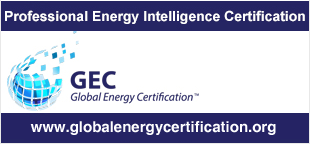NRG Expert continually surveys the global energy markets to ensure we are always topical and provide the most robust data possible.
Our research will often help us reduce risks associated with data collection, but it cannot take the risk away entirely. It is also important to ascertain whether the research has been complete. Our Surveys are useful for getting a great deal of specific information. Our Surveys can contain open-ended questions. Open ended questions have the advantage that the respondent is not limited to the options listed, and that the respondent is not being influenced by seeing a list of responses. However, open-ended questions are often skipped by respondents, and coding them can be quite a challenge. In general, for surveys to yield meaningful responses, sample sizes of over 100 are usually required because precision is essential. For example, if a market share of twenty percent would result in a loss while thirty percent would be profitable, a confidence interval of 20-35% is too wide to be useful.
Surveys come in several different forms. We conduct mail surveys, but response rates are typically quite low—typically from 5-20%. Phone-surveys get somewhat higher response rates, but not many questions can be asked because many answer options have to be repeated and few people are willing to stay on the phone for more than five minutes.
Surveys, as any kind of research, are vulnerable to bias. The wording of a question can influence the outcome a great deal. For face-to-face interviews, interviewer bias is a danger, too. Interviewer bias occurs when the interviewer influences the way the respondent answers. For example, unconsciously an interviewer that works for the firm manufacturing the product in question may smile a little when something good is being said about the product and frown a little when something negative is being said. The respondent may catch on and say something more positive than his or her real opinion. Finally, a response bias may occur—if only part of the sample responds to a survey, the respondents’ answers may not be representative of the population. NRG Expert is independent and takes great care to ensure that no bias comes into its face to face interviewing.
Personal interviews involve in-depth questioning of an individual about his or her interest in or experiences within the energy industry. The benefit here is that we can get really into depth (when the respondent says something interesting, we can ask him or her to elaborate), but this method of research is costly and can be extremely vulnerable to interviewer bias.
To get a person to elaborate, it may help to try a common tool of psychologists and psychiatrists—simply repeating what the person said. He or she will often become uncomfortable with the silence that follows and will then tend to elaborate. This approach has the benefit that it minimizes the interference with the respondent’s own ideas and thoughts. He or she is not influenced by a new question but will, instead, go more in depth on what he or she was saying.
Personal interviews are highly susceptible to inadvertent “signaling” to the respondent. Although an interviewer is looking to get at the truth, he or she may have a significant interest in a positive consumer response. Unconsciously, then, he or she may inadvertently smile a little when something positive is said and frown a little when something negative is said. Consciously, this will often not be noticeable, and the respondent often will not consciously be aware that he or she is being “reinforced” and “punished” for saying positive or negative things, but at an unconscious level, the cumulative effect of several facial expressions are likely to be felt. Although this type of conditioning will not get a completely negative respondent to say all positive things, it may “swing” the balance a bit so that respondents are more likely to say positive thoughts and withhold, or limit the duration of, negative thoughts. NRG Expert is very conscious to avoid signalling.
Online research methods. The Internet now reaches the great majority of countries, businesses and households in the world, and thus, online research provides new opportunity and has increased in use.
One potential benefit of online surveys is the use of “conditional branching.” In conventional paper and pencil surveys, one question might ask if the respondent has shopped for a new power transformer during the last 12 months. If the respondent answers “no,” he or she will be asked to skip ahead several questions—e.g., going straight to question 17 instead of proceeding to number 9. If the respondent answered “yes,” he or she would be instructed to go to the next question which, along with the next several ones, would address issues related to this purchasing experience. Conditional branching allows the computer to skip directly to the appropriate question. If a respondent is asked which brands he or she considered, it is also possible to customize brand comparison questions to those listed.
There are certain drawbacks to online surveys. Some may be more comfortable with online activities than others. Today, however, this type of response bias is probably not significantly greater than that associated with other types of research methods. A more serious problem is that it has consistently been found in online research that it is very difficult—if not impossible—to get respondents to carefully read instructions and other information online—there is a tendency to move quickly. This makes it difficult to perform research that depends on the respondent’s reading of a situation or product description.
Online search data and page visit logs provides valuable ground for analysis. It is possible to see how frequently various terms are used by those who use a firm’s web site search feature or to see the route taken by most respondents to get to the page with the information they ultimately want. If respondents use a certain term frequently that is not used by the firm in its product descriptions, the need to include this term in online content can be seen in search logs. If respondents take a long, “torturous” route to information frequently accessed, it may be appropriate to redesign the menu structure and/or insert hyperlinks in “intermediate” pages that are found in many users’ routes.
Research sequence. In general, if more than one type of research is to be used, the more flexible and less precise method—such as individual interviews—should generally be used before the less flexible but more precise methods (e.g., surveys) are used. Interviews are flexible and allow the researcher to follow up on interesting issues raised by participants who can be probed. However, because the sample sizes are small and because participants in interviews are limited, few data points are collected. This is usually no more precise than what we already reasonably knew. Questionnaires, in contrast, are highly inflexible. It is not possible to ask follow-up questions. Therefore, we can use our insights from interviews to develop questionnaires that contain specific questions that can be asked to a larger number of people. There will still be some sampling error, but with a sample size of 150+ responses, we may be able to narrow the confidence interval for the percentage of the target market that is seriously interested in our product to a range that is much more meaningful.
Cautions. Some cautions should be heeded in marketing research. First, in general, research should only be commissioned when it is worth the cost. Thus, research should normally be useful in making specific decisions.
Secondly, marketing research can be, and often is, abused. Often, a way to get your way is to demonstrate through “objective” research that your opinions make economic sense. NRG Expert will always proceed with caution when undertaking new market research, and will ensure commissioned projects always meet the full needs of the customer.

















